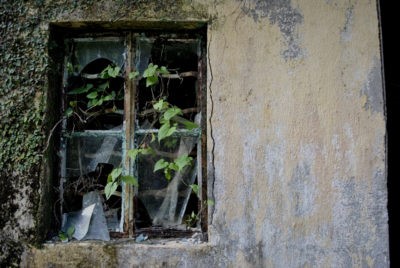– Aldo Maria Valli
The book is titled Nostalgia. Going home in a homeless world. It is in English and was written by Professor Anthony Esolen, professor of literature at the Thomas More College of Liberal Arts in Merrimack, New Hampshire.
I immediately say that I did not read it, but that I only saw the review that Father John Zuhlsdorf dedicated to him in his blog. However, the title was enough. Nostalgia: going home to a world without a home: is not this the need that so many of us feel, within the Catholic Church? To return home, in a welcoming new home, a house that is truly yours, different from this Church, which, on the other hand, if you only dare to point out that something is wrong, makes you feel not at home, but stranger at home.
I repeat, I have not read the book and I limit myself to take a cue from the title, which struck me. According to what Father Zuhlsdorf says, the work is not openly Catholic, but the vision of the world it expresses is profoundly Catholic. The fact is that that word, “nostalgia,” in my opinion deserves a reflection today.
“You are a nostalgic” is one of the many accusations that I hear every time I speak of the Church “that used to be,” where I felt at home. A Church in which you could trust the parish priest and the bishop, without fearing that from one day to the next they could invent some novelty not very Catholic or could get to speak as exponents of the United Nations or as trade unionists or environmentalists. A Church in which there was never talk of welcome and inclusiveness, but it was truly welcoming and inclusive, in fact, because it was clear in its proposal and therefore honest. A Church that did nothing, but nothing, to appear friendly and nice, and for this it was a true Mother, who put you in front of your responsibilities. A Church that spoke of sin and not of not better defined “fragility.” A Church that spoke of divine judgment and not of a generic mercy. A Church that recommended the fear of God and it was not all joy and gladness and smiles and songs and dances, but transmitted the true joy teaching the adhesion to the eternal divine law.
Nostalgia, yes. A lot of nostalgia. I try it more and more. And I have no problem defining myself as nostalgic, although I know that in Italy the word has a marked political connotation that makes it even less feasible.
In the etymology of the word nostalgia there is the reference to algos, to pain, while nòstos means returning to the country, at home. Nostalgia is therefore that excruciating pain that takes you when you are far from home and you feel the need to come back. It is nostalgia for what you know well, of the things and people among whom you grew up. It is nostalgia for a world that you trusted and which you felt part of.
But how can we trust in the Church today? And do we really feel at home?
I already hear the following accusation: as nostalgic, the undersigned would also be traditionalist, in the sense of linked to a sick concept of tradition, as something that is still, immobile, and therefore dead.
Well, I like to reply that, as a Catholic, I am not, nor can I be, historicist. So I do not give into the temptation, so widespread today, even in the Church, to argue that to implement the experience of faith we must take history, and therefore change, rejecting the absolute and definitive truth. Of course, divine revelation passes through history, but history, or the world, is not the only horizon. The Catholic has another, higher horizon. A supernatural horizon.
I therefore also long for a Church that taught the supernatural and was not ashamed of it. A Church that spoke of the Novissimi (death, judgment, hell, paradise) and did not pose problems of politically correct language. A Church that thundered against sin by calling it by its name and remembering that sin can be mortal, which means that, in the absence of repentance, it condemns the soul to eternal damnation.
Nostalgia, yes, a lot. Nostalgia of honest liturgy, clean, uncooled, not “strange,” not animated, not outraged. Nostalgia of tabernacles visible, recognizable, and not hidden, not camouflaged. Nostalgia of priests dressed as priests. Of nuns dressed as nuns. Of lay people who do not go to the ambo to read the sacred texts wearing shorts and other not appropriate dressing. Nostalgia of certain forms that were substance, because they referred to precise theological meanings. Nostalgia of good religious education. Nostalgia of that gravitas, of that dignity and seriousness that was the patrimony of the clerics but also of the laity, before they went crazy.
Of course, there may also be a false nostalgia, or a distorted nostalgia, for an alleged golden age that in reality has never existed and is now being built by our minds for the purpose of comfort. But I do not want to fall into this trap. What I’m nostalgic about is not a mythical golden age. No, it’s my home. A house that I knew well, but that almost disappeared.
Father John Zuhlsdorf explains that in Professor Esolen’s book there is also talk of Ulysses and the goddess Calypso, who tried to seduce him, but he was able to resist, because he thought of Ithaca.
And do we ever think of our Ithaca?
(From Duc in altum, 2017©AP. Used with permission)


 Follow
Follow


